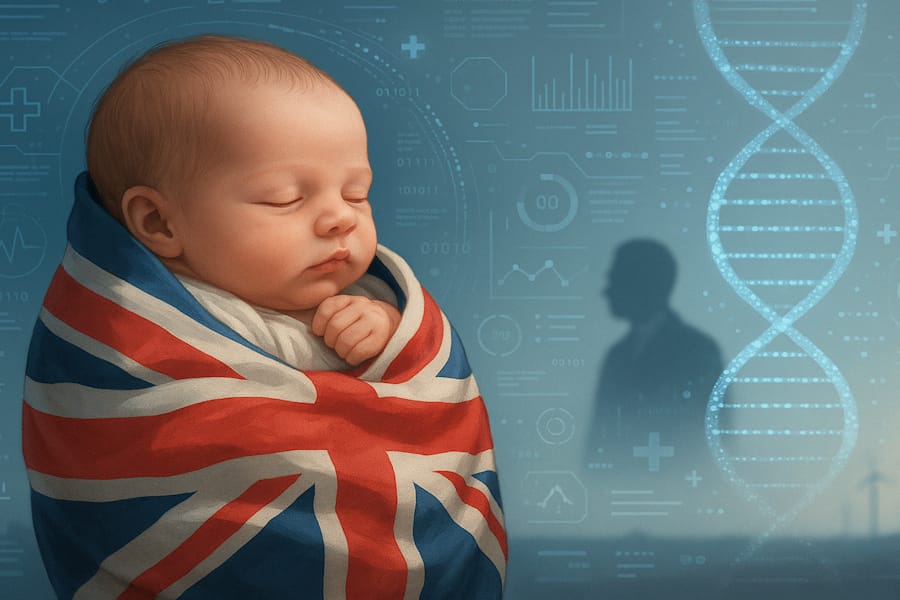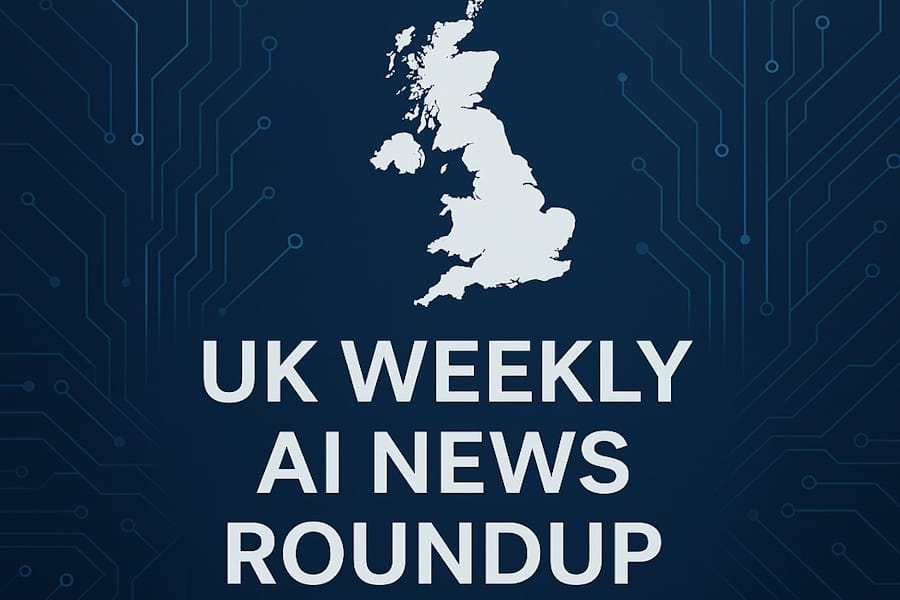NHS to DNA Test All Newborns
Medical Breakthrough or Ethical Minefield?

Publish Date: Last Updated: 7th July 2025
Author: nick smith- With the help of CHATGPT
The UK government has announced a groundbreaking initiative: every baby born in England will undergo full DNA sequencing under the NHS, with the aim of predicting and preventing serious diseases before symptoms appear. While hailed as a leap forward for personalised medicine, this plan also raises urgent ethical, legal, and data security concerns.
A Genomic Revolution in Public Health
As part of its 10-year vision for transforming the NHS, the government is investing £650 million into DNA technology and AI-enabled healthcare. The goal? Shift the NHS from a system that treats illness to one that predicts and prevents it.
Health Secretary Wes Streeting described the plan as an opportunity to "leapfrog disease," with whole genome sequencing providing early warnings for conditions such as muscular dystrophy, liver and kidney disorders, and other rare diseases. Babies will be screened shortly after birth using blood samples from their umbilical cords.
The plan builds on recent NHS studies that sequenced the genomes of 100,000 newborns and will help establish one of the world’s largest genomic research databases, targeting over 500,000 genomes by 2030.
The Role of AI in Predictive Healthcare
AI will play a critical role in analysing the vast genomic datasets. According to the Department of Health, machine learning models will assist clinicians in identifying disease risks, offering personalised healthcare plans long before symptoms arise.
However, AI’s involvement raises concerns about:
- Algorithmic bias in risk predictions.
- Transparency in how decisions are made.
- Oversight and regulation of AI systems processing highly sensitive genetic data.
Without clear governance, the use of AI in such high-stakes scenarios could undermine public trust in the very system designed to protect future health.
Ethical and Privacy Concerns
While the medical potential is immense, experts and privacy advocates warn of a slippery slope if protections are not clearly defined.
Key ethical questions include:
- Who owns the data? A newborn cannot give informed consent. At what point does the child gain control over their genetic information?
- Who has access? Will insurance companies, government agencies, or future employers be able to access this data—either legally or through data leaks?
- What if the test reveals a 90% chance of a life-threatening disease? Do you tell the parents? At what age should the child be told? And how does one cope with such knowledge when it’s only a probability?
Professor Robin Lovell-Badge of the Francis Crick Institute cautioned that without enough genetic counsellors to interpret and communicate results, the system risks creating more confusion and anxiety than clarity.
Where Will the Data Be Stored?
The genomic data will feed into a vast NHS-backed database maintained in collaboration with Genomics England. Yet there are still unanswered questions:
- How secure is the data?
- Will it be anonymised?
- Can it be used for commercial research?
- Will AI models trained on this data remain within public control?
Given recent concerns over data breaches and corporate misuse, these are not hypothetical risks.
Predictive Power vs Human Dignity
Perhaps the deepest concern is philosophical. Does knowing your future DNA-defined risks enhance your autonomy—or undermine it?
If a child grows up knowing they are highly likely to develop a severe illness, how does that shape their identity, choices, and mental health? And are we prepared for a world where genetic forecasting becomes destiny, rather than possibility?
Conclusion: A Call for Transparent Debate
This bold NHS move could place the UK at the forefront of genomic medicine—but only if transparency, consent, security, and regulation are made central pillars of the plan.
This is not just a scientific breakthrough. It’s a societal decision about how we define health, identity, and the limits of technology in our most private lives.
Latest Ai News Articles
AI Questions and Answers section for NHS to DNA Test All Newborns: Medical Breakthrough or Ethical Minefield?
Welcome to a new feature where you can interact with our AI called Jeannie. You can ask her anything relating to this article. If this feature is available, you should see a small genie lamp above this text. Click on the lamp to start a chat or view the following questions that Jeannie has answered relating to NHS to DNA Test All Newborns: Medical Breakthrough or Ethical Minefield?.
Be the first to ask our Jeannie AI a question about this article
Look for the gold latern at the bottom right of your screen and click on it to enable Jeannie AI Chat.






